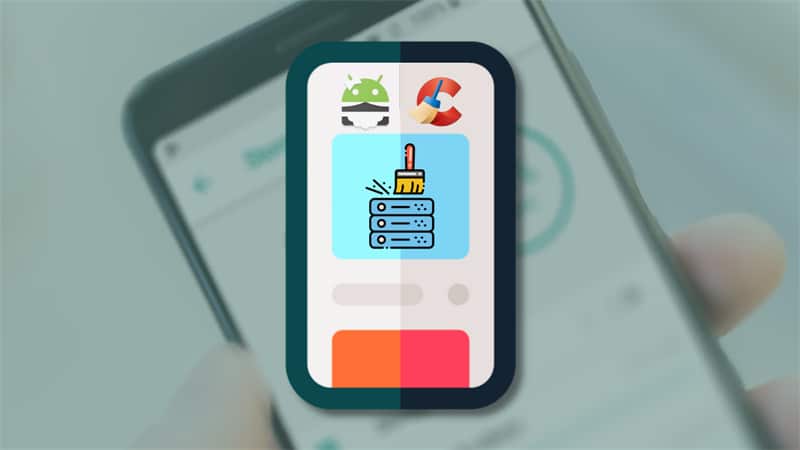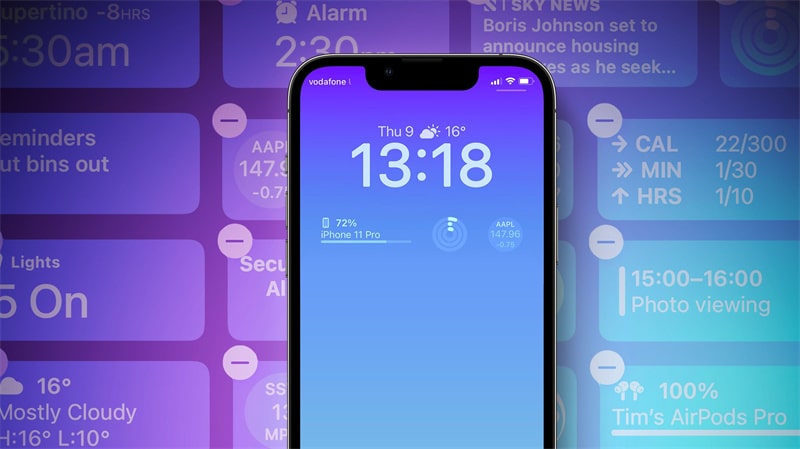
Is your phone suddenly slowing down? Before throwing it away for an upgrade, you should try these quick, easy fixes first.
Phones are an essential part of our daily lives, helping us keep in contact with friends and family, allowing us to work on the move, and keeping us entertained.
But at some point, your phone might drag its heels when starting up or freeze when loading an app. Is your phone dying? Do you need a new one? Maybe. Maybe not.
Before you start planning for a replacement, there might be a simple reason for the sudden drop in performance. This article will highlight seven of the most common reasons your phone is slowing down. There’ll also be simple solutions you can try to fix the issue, potentially saving you the cost of a brand-new phone!
Below are seven potential reasons why your phone may be slowing down. With each explanation, there’s a simple solution included that could fix your issue and ensure you get the maximum value from your phone.
1. Your phone’s cache is full

When using your phone, apps can store tiny pockets of temporary data in memory. Ordinarily, this data helps speed up an app’s performance by loading images and websites quicker, reducing data usage, and overall improving performance.
But sometimes, too much of this ‘cached data’ can have the opposite effect, slowing down your phone considerably. Especially if you haven’t used the app for some time, clearing your phone’s cache can be a great way of freeing up memory and improving performance.
You might be asking yourself, how do I clear the cache on my iPhone? Many apps, including browsers, will have a ‘Clear cache’ feature built into their settings. If an app doesn’t have this feature, you must delete the app from your iPhone to remove the cache.
You can find cached data information for Android users in the Settings and Battery and Device Care section. Click on Memory to find apps you haven’t used recently, their cached data information, and options to delete it.
2. You’re running out of storage
Another common cause of a sluggish phone is a lack of internal storage. All phones have a set limit on the size of apps, photos, and videos they can store. The more content on your phone, the more stress is placed on its computer processing unit (CPC), resulting in a slower performance.
The solution to this problem is simple. First, go to your phone’s settings and check available storage. While this may vary between models, most phones will break down what is stored on your phone between installed apps, photos, and videos. If memory is running low, consider uninstalling large apps or transferring files to a storage device and then deleting them.
3. You have too many apps running at the same time
Did you know that apps can perform several actions even when not used? These “background” apps might be recording things like your activity, syncing information, sending and receiving notifications, or downloading updates in the background.
If too many of these background apps are running, your phone will undoubtedly run slower. To remedy this, close any apps that you aren’t using. Make sure to limit an app’s permissions, including their notifications, and only permit them to work when being actively used.
Apps that use ‘Location Services,’ such as Maps, can be very power-hungry, as they constantly use your GPS and internet connection to update information in real-time. It’s recommended that you disable these apps from running and tracking your location when not in use.
4. You haven’t updated your phone
A poor-performing phone could simply be an out-of-date one. This is because developers often release new patches that boost a phone’s security and performance, allowing them to run with modern apps.
If you do not update your phone regularly, you run on older technology that cannot keep up. Go to your Settings and look for ‘Software Updates.’ Many phones will download and install updates automatically, ensuring your phone runs with the latest patches.
5. You’ve too many widgets on your home screen

Widgets are apps that perform a specific function on your phone, such as a live weather forecast, visual clock, or dynamic backgrounds. Though convenient, they can be power-hungry and, much like background apps, can slow down your phone’s performance by constantly running in real-time in the background.
If your phone is slowing down, especially on the home screen where widgets might be located, you should consider removing them. This will free up more processing power for your phone to use on running applications you want to run.
6. Your phone’s battery may be failing
As the power source behind your phone, it’s no surprise that a poor-performing battery can result in poor performance. On average, a smartphone’s battery should begin to slow down after two to three years and then may start to show signs of failure.
Signs your phone may need a new battery include:
- Needing to charge your phone multiple times per day
- Your phone randomly crashes
- The battery doesn’t last for long
- Overheating, especially when not in use.
- A drop in phone performance.
7. Your internet connection may be bad
The majority of our time spent on phones is online. And sometimes, we might mistakenly blame our phone for slow performance when our internet connection is the problem.
If your phone works fine until you open up those emails or stream a video, this points to a poor signal or slow connection. Check your phone’s Wi-Fi connections, ensuring you’re using the correct connection and that the signal is strong. You may need to reposition your router or change your mobile network to improve connectivity.
If your phone is still slow, despite a strong connection, you should conduct a speed test to see if the problem lies with your internet service provider.










